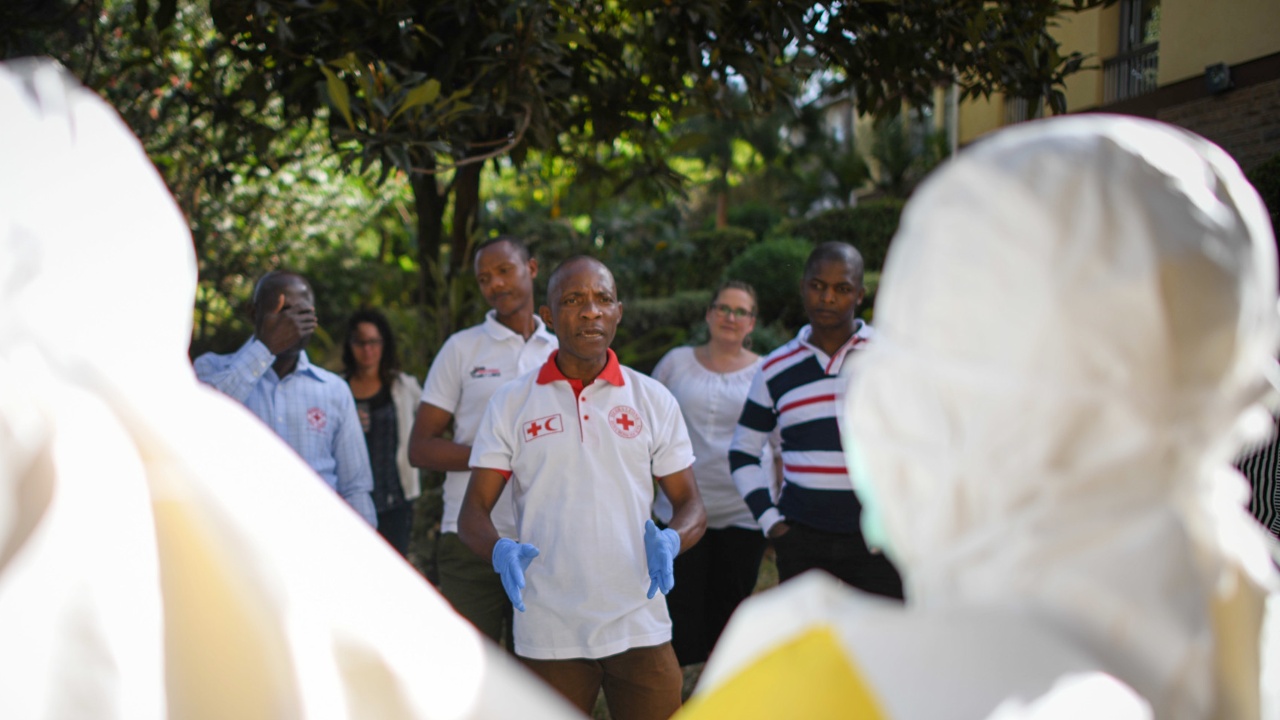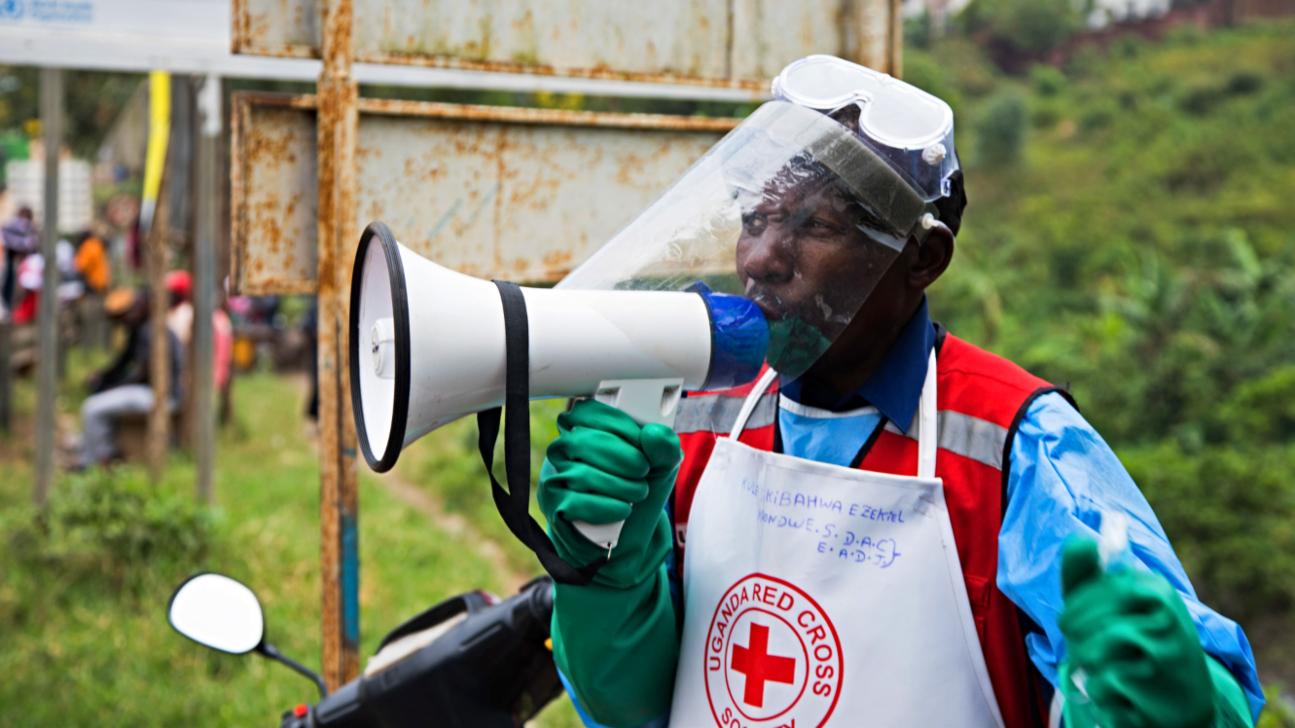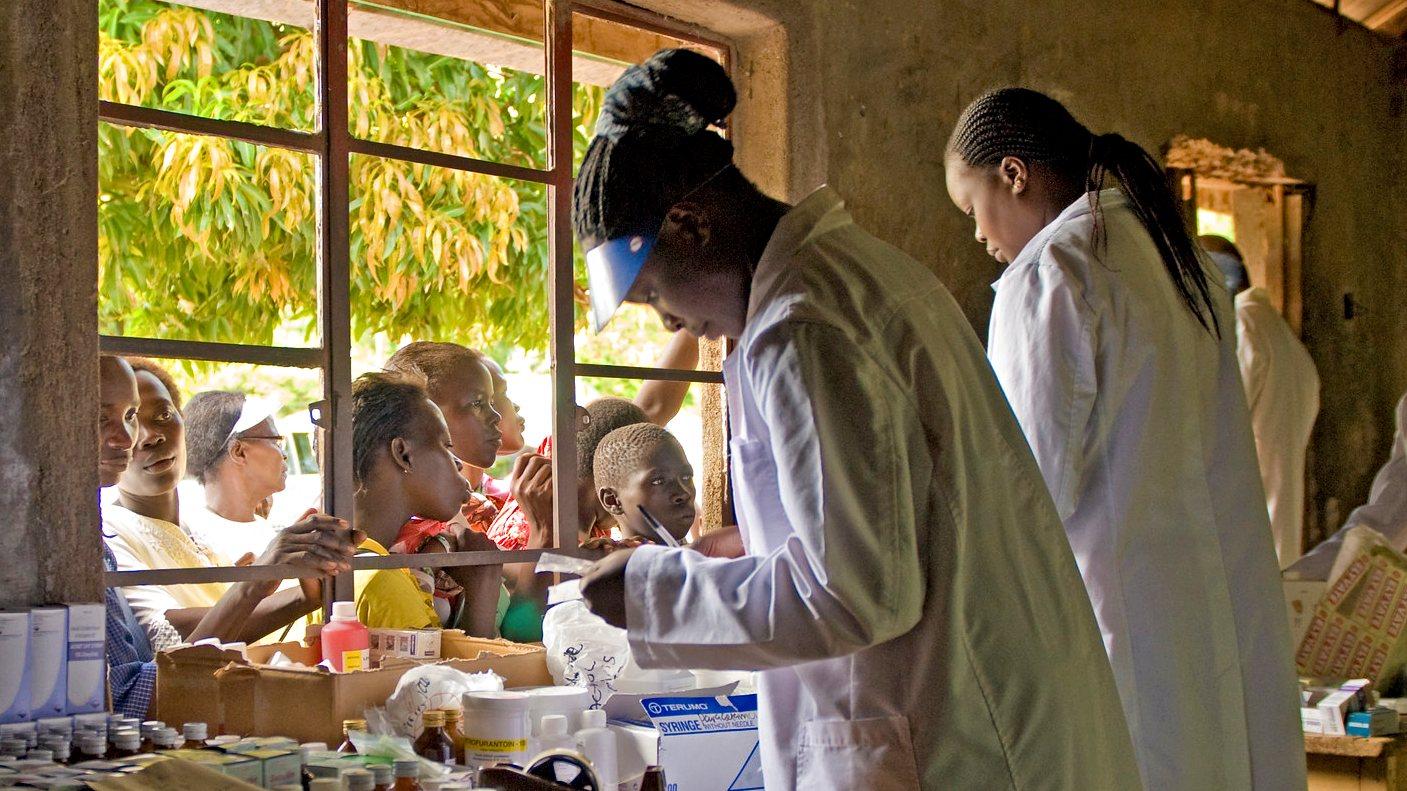Containing the COVID-19 pandemic requires the public’s cooperation in adopting health behaviours such as mask wearing and physical distancing. An online survey conducted in April 2020 shows that respondents in Kenya, Nigeria and Uganda had accurate information about COVID-19 but underestimated their peers’ support for COVID-related health policies. However, a majority of respondents were willing to encourage others to practice physical distancing, suggesting that peer-to-peer communication could be used to increase compliance with public health policies.
In March 2020, countries around the world began implementing lockdown policies in response to the spread of COVID-19. The number of COVID-19 cases in most African countries at the time were only in the double and triple digits. Even as these countries quickly enacted strict measures to contain the virus, many experts foretold devastating impacts in low income countries around the world, and especially in Africa.
A year later, it has become clear that many African countries were spared the worst of the predicted devastation, with the exception of relatively wealthy South Africa and several countries in North Africa. Nevertheless, the uneven rollout of COVID-19 vaccines and spread of more contagious variants mean that the pandemic is far from over. Continued reliance on preventive behaviour measures will be required for some time to come, particularly in those countries without access to a vaccine supply for their entire population.
Under what conditions will the public continue to adhere to public health behaviours like physical distancing and wearing masks?
In April 2020, we fielded an online survey in Kenya, Nigeria and Uganda, recruiting about 2,800 participants through social media, with the goal of shedding light on this question, anticipating that these behaviours would need to be practiced for a long time to come. Though our sample is not nationally representative, this group of social media users – who are more urban and more educated – provide interesting insights into the beliefs and behaviours of those who likely have more information about the virus and a greater ability to adhere to physical distancing measures. These relatively urban populations also tend to live in densely populated areas where viruses may spread more easily.
We were particularly interested in levels of information about COVID-19 at this early stage in the pandemic, the health behaviours people were adopting and whether social norms enforcing some of these behaviours were starting to emerge. Social norms can be particularly important in contexts where an individual’s behaviour produces externalities – where it impacts others – as is the case with a number of preventive public health measures around COVID-19, including physical distancing, mask wearing and vaccination.
For example, on the one hand, it may seem futile to try to practice physical distancing if no one else does. On the other hand, if others are practicing physical distancing, it may be tempting to ‘free ride’ off their good behaviour – that is, to benefit from others physical distancing without doing so oneself. Either way, without either effective top-down enforcement or bottom-up social pressure, individuals may opt to ignore public health guidance. One way to overcome these types of social dilemmas is through the creation and enforcement of social norms, where individuals pay a social cost for failing to practice a certain behaviour.
Researching attitudes towards physical distancing and lockdown policies
We were particularly interested in physical distancing, as this was one of the behaviours most encouraged early on in the pandemic, before masking became widely recommended and before vaccines became available. We were interested not only in respondents’ own attitudes and behaviours, but also in how respondents thought others would behave.
Overall, we found that respondents were well-informed about the preventive behaviours being promoted at the time, and reported few misperceptions about the spread and cure of the coronavirus. A large majority of respondents in each country – 83% of Nigerian, 87% of Kenyan and 89% of Ugandan respondents – knew that ‘maintaining a distance of 1–2 meters from others’ can reduce the spread of COVID-19. Nevertheless, many respondents were not adhering to physical distancing in practice, and did not expect others to do so, even when primed to think about the material or social costs associated with failing to adhere to guidelines.
We also found that there was a mismatch between respondents’ own attitudes toward lockdown policies, and their beliefs about others’ attitudes toward these policies. Respondents systematically underestimated public support for lockdown policies, a gap that we found across all three countries and across areas with and without lockdown policies in place. At the same time, given the opportunity, the majority of respondents wrote messages to encourage others to practice physical distancing.
Together these findings suggest that while social norms around public health behaviours did not exist at the time of the survey, there was indeed strong support of policies designed to enforce social distancing. Importantly, respondents were willing to participate in the process of promoting public health behaviours among their peers, sharing messages that we posted anonymously on a public website.
With the development and dissemination of COVID-19 vaccines, the Africa CDC has turned its attention to vaccine confidence across the continent. As 31 African countries have started administering doses, we have seen heads of state, traditional leaders, journalists and ordinary citizens actively sharing updates on their vaccination status. One reason for sharing selfies and other images of vaccination is to encourage others to also get vaccinated and overcome vaccine hesitancy.
Few works have studied the causes of vaccine hesitancy in the African continent. If, like in the case of physical distancing, individuals are underestimating others’ willingness to accept the vaccine, then it is possible that public behaviours such as sharing selfies on social media might help create common knowledge about vaccine acceptance and safety.
While many countries have adopted top-down approaches to COVID-19 prevention, such as mandating certain health behaviours, our research suggests that peer-to-peer messaging may also be an important way for health behaviours to ‘spread’. The explosion of selfies on social media and beyond suggests this is also an intuitive and widespread response being taken by individuals, who are ready and willing to encourage others.
Photo: ‘A masked seller and buyer’, Kenya. Photo: World Bank / Sambrian Mbaabu. Licensed under creative commons CC BY-NC-ND 2.0.





